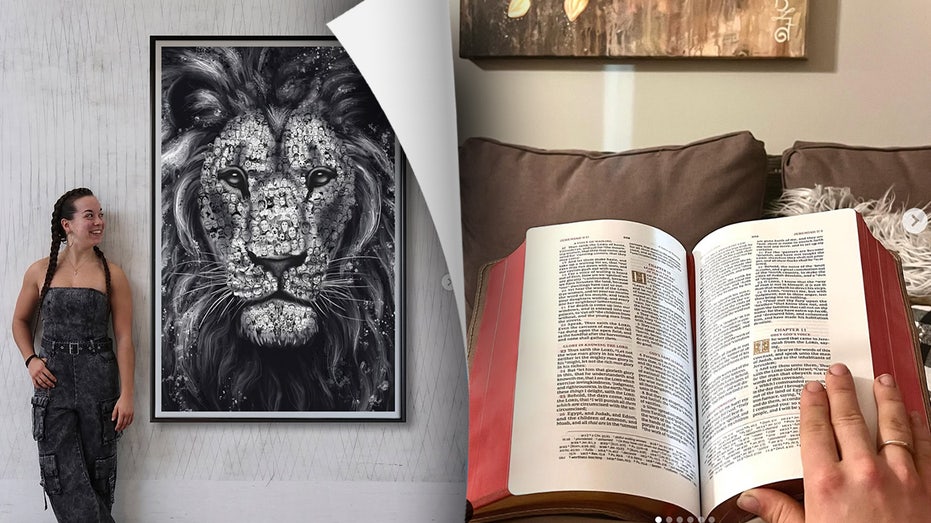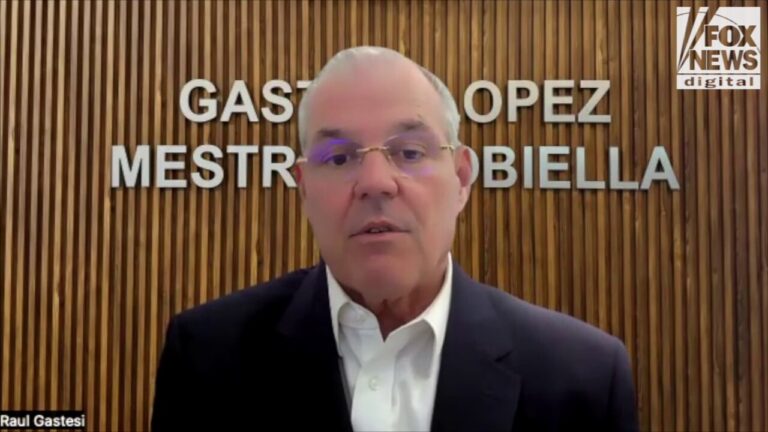
Despite years of declining religious affiliation, print Bible sales have spiked. A first-time Bible buyer and Bishop Robert Barron both weighed in on the trend.
Briana Fitzpatrick grew up in a Christian family and felt a strong connection to a higher power. But it wasn’t until this time last year that the young, New York-based artist finally decided to buy her first Bible.
The inspiration came to Fitzpatrick as she was sitting with her father, watching a documentary about “Duck Dynasty” star Phil Robertson.
“He pulled out his Bible and … you could tell he’d had it for decades and decades. It was just held together with duct tape,” Fitzpatrick told Fox News Digital. She began to imagine having her own Bible that she could pass down for generations, filled with highlights and notes that her children could read and “see how the Lord spoke to me through it.”
Fitzpatrick is among the young, first-time Bible buyers publishers say are fueling a new surge in sales.
‘MARY’ MOVIE PUTS SPOTLIGHT ON THE MOTHER OF GOD
Bible sales rose 22% through October compared to the same period last year, according to data released this month by Circana Bookscan. Total U.S. print book sales were only up 1%, according to The Wall Street Journal, which first reported the trend.
“The religion book market has been a bright spot of growth within the total book market since the pandemic,” Brenna Connor, an industry analyst with Circana, told Fox News Digital in a statement. “Bibles are leading that growth, but other subjects like Christian Life and Biblical Studies are also up, reflecting increased interest for Christian subjects in the U.S.”
Print Bible sales hit a five-year low of just under 8.9 million in 2020, according to Circana’s data, before beginning to tick upward again. Sales surpassed 13.7 million in the first 10 months of this year, Circana reported.
The increase in Bible sales comes even as polling shows a decline in religiosity across the country.
The share of Americans identifying with a Christian religion hit a low of 68% last year, according to Gallup polling. Half a century ago, 87% of adults in the U.S. identified as Christian, Gallup found. About 28% of American adults are now religiously unaffiliated, according to Pew Research.
“Some people, sure they’re not going back to church, but they are reaching out to the Bible,” Minnesota-based Bishop Robert Barron told Fox News Digital.
SATANIC TEMPLE’S NATIVITY DISPLAY IN NEW HAMPSHIRE DESTROYED, DEM REP CALLS FOR NEW DISPLAY
“Let’s face it, the Bible has been — certainly for Western civilization, but even all over the world — the main source of meaning, purpose, value,” Barron said. “I think people are turning back to the Bible in greater numbers because they’re looking for that, and they realize instinctively they’re going to find it.”
He also speculated that Canadian psychologist Jordan Peterson could be adding to the trend, since he has been “talking about the biblical text in a way that people find very compelling.” Barron added that he’s seeing a notable shift away from the New Atheism of the early 2000s.
“I think in the beginning some people thought, ‘Oh, great. Stick it to the man, and I’m against religion.’ But when you take that message in, what are you left with? It’s a complete nihilism,” Barron said, adding that he hasn’t been surprised by rising rates of depression, anxiety and suicidal ideation, particularly among young people. “That’s what happens when you say there’s no meaning or purpose.”
Publishers similarly suggested the Bible boom could be a natural consequence of a general feeling of anxiety in the world.
“I do think people are hungry for truth, and hungry for purpose and meaning and a sense of direction, especially for the past few years,” Fitzpatrick said. “I think a lot of us are like, what is going on? Who do we trust? What do we turn to?'”
Fitzpatrick said having a physical Bible revolutionized her spiritual journey. She has read the Bible every day since making the purchase, and even started attending Bible study groups.
She shared her purchase on social media, and said her followers have been supportive and even inspired to buy their own Bibles — or dust off a long-neglected copy.
“It’s so neat to see how God uses social media and stuff, which can sometimes have a really bad rap,” she said, adding, “But [He] can use it to shine his love and his light through people.”





